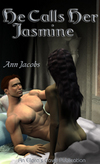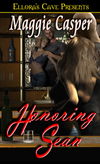There are lots of ways that those of us who work in television find out that our shows have been cancelled. This is one of them.
Month: May 2005
Website as Pitching Tool
A number of people have alerted me to this news: a guy created a website to pitch his movie… and it worked. LAObserved has the story.
Screenwriter Eric Heisserer set up a
website called The Dionaea House
last year and posted a series of correspondence between characters in his horror
screenplay. After all, if the Internet is there, why not exploit it to create
some buzz? The site got a ton of hits. Tomorrow’s Hollywood
Reporter says the website helped "build the mythology" of the project — and
Warner Bros. Pictures picked it up for David Heyman to produce at Heyday Films.
Round Table Pitching
Today, I received this email:
Currently, I am writing a mystery novel – my first – and pitched to an executive editor from a film company at a conference late in April. He asked me to formalize the pitch and submit. Being new to the concept, I am at sea.
The idea I pitched had to do with my specific mystery, but for a tv series or film, shouldn’t the pitch be less specific? I have written four sentences that sum up the idea for a series/movie.I also have written a cover letter to re-introduce myself to the editor. I have the submission packet from the company with standard submission forms to complete, but is there anything else I should
include?
Here’s how I replied: First, some questions for you. What is an executive editor at a film company? I have been in this business a long time and I have never heard of such
a position. If I may ask, what company are we talking about here? Are they reputable? Have they produced any TV shows or movies you’ve actually heard of?
Secondly, most pitches are done verbally in Hollywood, so submitting the pitch on paper seems odd. Even so, when I do a pitch, I usually leave behind a punchy one-or-two page synopsis — think of it as book-jacket copy meant to entice the reader into buying the book.
Finally, are you pitching a TV series or a movie? They are two very, very different things and require very, very different kinds of pitches. Since I haven’t seen this company’s submission forms, and have no idea what they ask from you, so I don’t know if filling them out is enough.
This sounds to me like one of those round-table-pitching conferences where aspiring writers have five minutes to pitch their stuff to some development exec. I’ve never done one of those things, so I really have no idea how it works.
Procrastination 101
I’ve got hundreds of signed first editions and, up until now, I’ve been using My Book Collection, a Filemaker-based program, to slowly catalog them. It’s a pain-in-the-butt and laborious. But along came Book Collector, a fantastic piece of software that uses a barcode scanner to catalog your collection, though you can also input books manually using title, ISBN, etc. The software downloads cover images, plot information, page count, price, and a ton of other details for you from a wide variety of sources in an instant. You can also tweak it in a number of ways to suit your own needs. I was able to catalog my entire, 800+ collection of signed first editions this weekend in about three hours. It’s an amazing piece of software and it’s cheap, too…it’s $39.95. The scanner, which you have to buy seperately, runs about $100 (mine is a Wasp handheld, which I bought on sale a few weeks ago at Frys).
I was so enthusiastic about that procrastination experience, I wanted to get my hands on a program that would do the same for my DVD and VHS movie & TV show collections. The folks behind Book Collector have a similar program called Movie Collector. I downloaded their trail version and compared it with another program called DVD Profiler. Personally, I found DVD Profiler much better at locating titles, cover images, and detailed information about obscure titles (and British titles) and it’s ten dollars cheaper, too… though they offer a shareware version that’s free.
I’ve put both Book Collector and DVD Profiler on my desktop and laptop so I can go where the books, DVDs, and tapes are rather than having to haul everything to my desk. From now on, adding new books or DVDs to my collection will be fast, easy, and nearly effortless.
Welcome to Fantasy Island
I would like to Email Mr. Wolf about an idea…If anyone knows his email address are a way I can get in contacted with please email me at StreetRacerBW@yahoo.com. Thank you, Victoria.
My reply: If you’ve paid any attention to Dick Wolf’s shows, you’ll notice they all have one thing in common. They were all created by Dick Wolf. Why would he want your idea? He’s making hundreds of millions of dollars off his own. But setting that obvious fact aside for a moment, do you really think emailing him an idea is going to work? Do you think he’ll read your email, send a limo to your house, bring you over to the studio, and offer you a box of cash? I only have four words for you, Victoria: Welcome to Fantasy Island!
Blog Blowback for Lori Prokop
I’m not the only one amused by Lori Prokop and her ridiculous BookMillionaire reality show scam. Other blogs are having fun with it, too. For example, Richard Cobbett took a look at the requirements to be one of the "contestants" on the informercial:
You can apply if you meet any one of the following criteria:
You don’t need to have written your book or manuscript but you have an idea you feel would be a good book, or…
You may have been told by people that you should write a book, or…
You have a desire to become published and to live the incredible lifestyle of a rich, famous author, or…
You may have started writing your book, but it is not completed yet, or…
You may have your book written. It is completed but not published, or…
You may have published your book, but it has not sold like you wanted.
In
other words, you don’t need to write, you don’t need to have written,
you don’t need to know what you’d like to write, and a pulse would seem
entirely optional. According to the infamous host Lori Prokop – whose
name is an anagram of OIL PORK PRO – only about 5% of writing involves
writing, while the other 95% is buying her self-help books-oops, sorry,
business and marketing.
Applying to be a contestant also gets you on Lori’s coveted email list, as SeaWhyspers says.
Then you’ll be subscribed (forever) to the newsletter
which will solve ALL of your problems with writing: Become Best Seller
(does anyone else already feel nauseous over the pathetic grammer used
on this site?). I can’t say ANY of those bulleted items sounds remotely
like writing to me (scamming, sure), but what do I know? I’m not a Best
Seller, and I’m absolutely SURE it’s because I’m not getting this
newsletter.
For someone who thinks of herself as a marketing genius, she sure screwed up this campaign. Perhaps she’d have better luck targeting chiropractors again instead of writers. If you’d like to add Lori to your own "Get Rich Quick" mailing list, her oh-so-subtle, loaded-with-integrity, email address is: Cash@megabestseller.com.
(Click here and scroll down the page to hear Lori pitch some of her get-rich-quick schemes as a tease for her presentation at the "Internet Gravy Train to Riches" conference that was held in 2003.)
EBooks & CGI Covers
 I was reading my sister-in-law Wendy’s blog and noticed she’s reading "Heather’s Gift," an e-book from ebook publisher Ellora’s Cave, which seems to specialize in erotic romance.
I was reading my sister-in-law Wendy’s blog and noticed she’s reading "Heather’s Gift," an e-book from ebook publisher Ellora’s Cave, which seems to specialize in erotic romance.  But just because a book is published "electronically," do the covers also have to be CGI as well? Without reading a word, the covers imply that the writing will be as synthetic as the "people" on the covers.
But just because a book is published "electronically," do the covers also have to be CGI as well? Without reading a word, the covers imply that the writing will be as synthetic as the "people" on the covers.  There’s something very unappealing about reading books about CGI characters having CGI sex…sort of the literary equivalent of an x-rated computer game.
There’s something very unappealing about reading books about CGI characters having CGI sex…sort of the literary equivalent of an x-rated computer game.
Now to be fair to Ellora and her cave, I haven’t read any of the books and there are some covers that use actual models, or have artwork that actually resemble genuine human beings…
(Click on the covers for larger images).
The Drool Doesn’t Go Both Ways
Networks and studios always drool over big-name screenwriters and dangle pilot deals in front of them…then, inevitably, pair them with experienced showrunners if the pilot goes to series. Veteran showrunner, and now Oscar-nominee, Paul Haggis is finding the drool doesn’t go both ways. Movie studios don’t clamor for TV writers.
Take the case of "Million Dollar Baby" writer Paul Haggis and his new film "Crash," which debuted in U.S. theaters on Friday.
Haggis,
a veteran television writer, saw his screenplay for "Million Dollar
Baby" turned into Oscar’s best film of 2004 by Clint Eastwood. It
earned three other Oscars: best director for Eastwood, actress for
Hilary Swank and supporting actor for Morgan Freeman.But when it
came to "Crash" — a film he wrote and directed that looks at race and
class among Americans in Los Angeles — he said no major studio would
give him the money to shoot it because, among other things, Hollywood
saw him as a TV guy."The stigma is still there. No matter how
many times someone breaks through, they still think that is the one
exception," Haggis said, referring to studio executives.
I wonder why that is?
Randall Wallace went from moderate success in TV ("Sonny Spoon," "JJ Starbuck," etc.) to much bigger success in film ("Braveheart," "We Were Soldiers," "Pearl Harbor" etc.) And, of course, there are TV writers like Paddy Chayefsky, Reginald Rose, Rod Serling, Alvin Sargent and other folks from TV’s so-called "Golden Age" who went on to big careers in film. On the other hand, TV heavyweight David E. Kelley’s two forays into film have been big duds. And neither Steve Bochco nor Steve Cannell have been able to get a major studio film off the ground.
Can you think of anyone recently who has been a success in TV and who has earned equal success in film? Some guys, like Terry Winter (Sopranos) and Paul Bernbaum (A-Team) are poised for it with upcoming films…
Pilot Tape Crackdown
The networks announce their fall schedules in a week or two and, usually, around this time tapes of the various pilots under consideration start floating around town. But this season, that has changed. Variety reports that studios are cracking down on the practice. The studios are getting so tight with tapes, even the producers of the pilots have a hard time getting screeners of their own shows.
"It’s unlike anything I’ve ever seen," said one insider at a major
tenpercentery. "You hear rumors of execs telling assistants they could go to
jail if they leak something out."Another said he can’t even get his hands on his own network’s tapes, at least
prior to the pilot’s official screening. Studios and nets always make noises about not wanting tapes to be traded with
other studios or nets. So why are the rules actually being enforced this year?Some trace it back to a dictate from top brass at 20th Century Fox TV, who
laid down the law last month when early copies of a couple of the studio’s
pilots started floating around town — even before the networks where the shows
are set up had had a chance to formally screen them. Others speculate that Leslie Moonves’ control of Paramount Television has
further restricted the free flow of tapes. Moonves insists on a strict cone of
silence surrounding the development process at his units.As frustrating as the crackdown has been for some, one studio exec said it’s
necessary in a world where "there’s a tremendous incentive for agents to try to
create a bad buzz" about projects with which they’re not associated."When you have people who’ve seen tapes calling network execs and saying, ‘Do
you really like that?,’ it starts to have an impact on your project," the
exec said.One agent admitted he’s guilty of spreading bad buzz. "Everyone talks shit
about everyone’s pilot," he said.
I wonder if the crackdown will be as strongly enforced after the schedules are announced. Usually, tapes of busted pilots start floating around town during the summer and you get a chance to see what didn’t make the schedule and why.
Last season, I was eager to get my hands on the Lost in Space pilot directed by John Woo and had a hell of a time tracking down a tape through my usual sources (When you’ve written a book on unsold pilots, and filmed two TV specials about’em, you have lots of sources). But once I did get the tape and put it in the VCR I could see why WB wanted to bury it. It was horrendous, misguided, and stupid. (I’m still trying to get a copy of The Time Tunnel revival pilot).
Many years ago, I really wanted to see the Stephen J. Cannell-produced Hawaii Five-O pilot starring Gary Busey and Russell Wong. But it was done for CBS, and Moonves is notorious about keeping his busted pilot under lock-and-key. It took me a year or so, but I finally scored a tape from someone who made me promise not to tell anyone where I got it for fear that Moonves would crush him. It wasn’t so bad…but it wasn’t so good, either.
Perdue vs. Brown
The lawsuit against Dan Brown, filed by author Lewis Perdue (my old journalism advisor at UCLA), is moving forward. The New York Times reports that the judge in the copyright infringement case is reading Brown’s THE DAVINCI CODE and Lew’s DAUGHTER OF GOD and THE DAVINCI LEGACY to
determine if they are "substantially similar" and if the suit should be allowed to proceed.
Judge George B. Daniels, of the United States District Court for the Southern
District of New York, gave himself the assignment after lawyers representing Mr.
Brown and Mr. Perdue urged him to read the entire works rather than rely on the
excerpts in their court filings, which detail scores of similarities and
differences between the books. Judge Daniels said he would make a decision on
the suit in 30 to 60 days.
Shortly after "The Da Vinci Code" was published in early 2003, Mr. Perdue
asserted that the novel improperly drew on two of his earlier novels, "Daughter
of God," published in 2000, and "The Da Vinci Legacy," published in 1983 and
released in a new paperback edition last year.Although Mr. Perdue had threatened to sue then, Mr. Brown and Random House,
the parent of Doubleday, the publisher of "The Da Vinci Code," first filed suit
over the matter. Last September, they asked the federal court in Manhattan for a
declaratory judgment that Mr. Brown’s book did not infringe on Mr. Perdue’s
copyright.Mr. Perdue countersued, charging Mr. Brown and Random House with copyright
infringement and adding as parties to the suit the Sony Pictures and Columbia
Pictures divisions that are producing a film of "The Da Vinci Code." Mr.
Perdue’s court filings state that he has suffered damages "believed to be in
excess of $150 million."
Lew talks about the ruling (and charts the entire legal process as it goes on) on his DaVinci Crock blog. His observations include:
The most significant missed story in court on May 6, was the Random House
attorney’s concession — for the sake of the arguments in this case — that Dan
Brown had access to my works. They have consistently argued that access
was lacking, that Dan Brown never heard of me or my books
Expect a ruling in the next month or two.



